21.10.2024
The fifth anniversary of the first all-female spacewalk by NASA astronauts Christina H. Koch and Jessica U. Meir seems like a good time to tell the story of women spacewalkers. Since the first woman stepped outside a spacecraft in 1984, 23 women from four nationalities have participated in 61 spacewalks. These women made significant contributions to their national and international programs, conducting pioneering work during their spacewalks. Their accomplishments include servicing of satellites, assembly and maintenance of space stations, conducting research, and testing new spacesuits. Since the first spacewalk performed by a woman in 1984, women have displayed their contributions in performing extravehicular activities and there has even been four all women spacewalks since then.
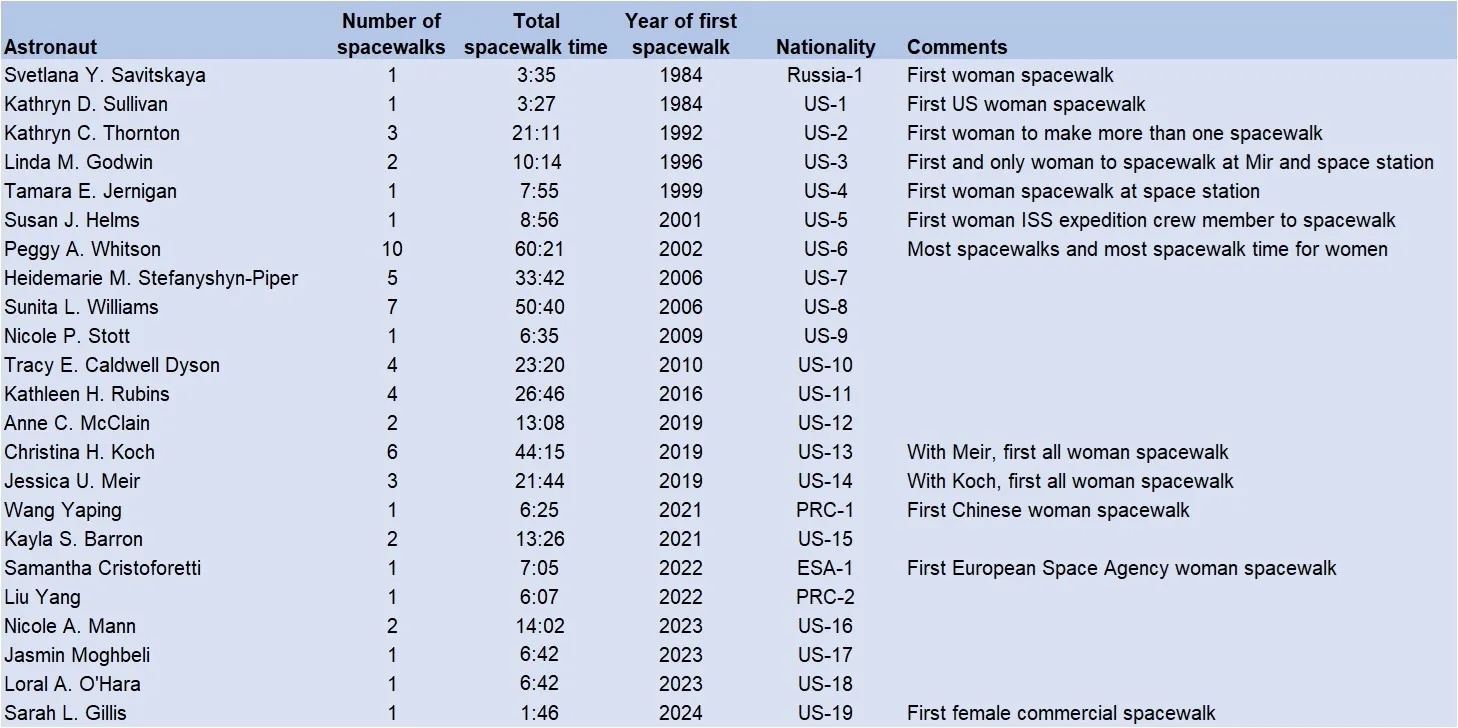
Table listing women with spacewalk experience.
As of Oct. 18, 2024, 79 women have flown in space, and 23 of them have donned spacesuits of different designs and stepped outside the relative comfort of their spacecraft to work in the harsh environment of open space. The various spacesuits, Russian Orlan, American Extravehicular Mobility Unit, Chinese Feitian-2, and SpaceX’s new design, all provide protection from the harsh environment, essentially turning the astronauts into individual spaceships. They all provide the crew members with the ability to carry out complicated tasks in open space.
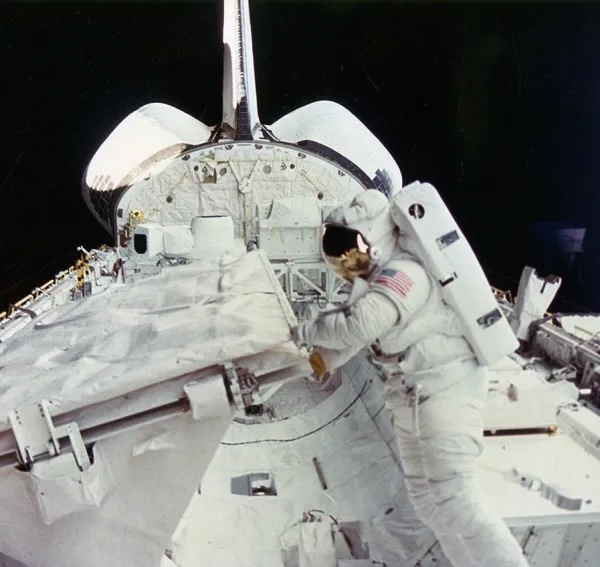
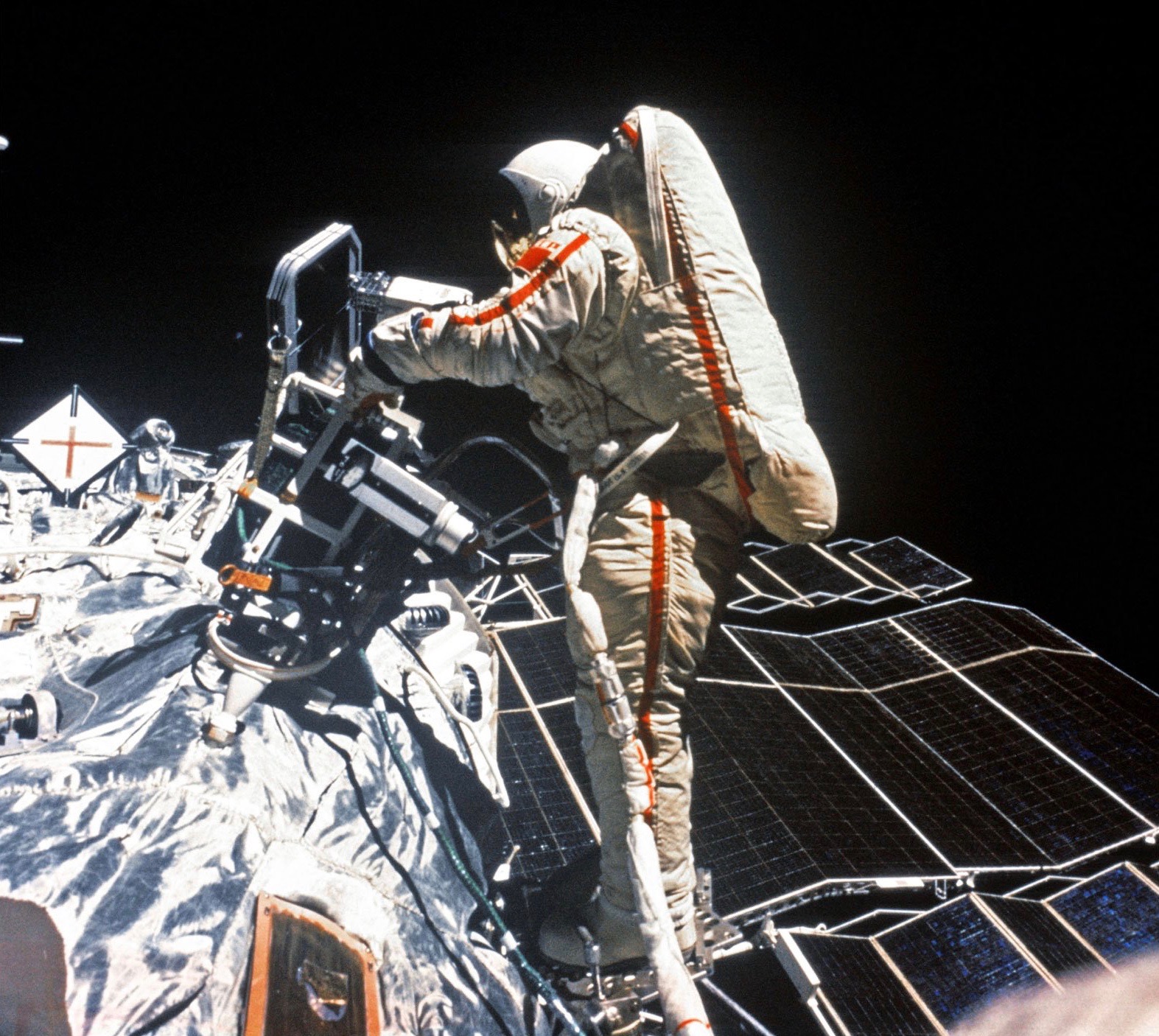


Left: Soviet cosmonaut Svetlana Y. Savitskaya during her historic spacewalk outside the Salyut 7 space station. Middle: NASA astronaut Kathryn D. Sullivan during her historic spacewalk during STS-41G. Right: NASA astronaut Kathryn C. Thornton on her second spacewalk on STS-61.
Soviet cosmonaut Svetlana Y. Savitskaya made history on July 17, 1984, as the first woman to make a second trip into space, on her second visit to the Salyut 7 space station. Savitskaya made history again on July 25 as the first woman to participate in a spacewalk. During the 3-hour 35-minute excursion, Savitskaya tested a multipurpose tool for electron beam cutting, welding, soldering, and brazing.
Less than three months later, on Oct. 11, NASA astronaut Kathryn D. Sullivan completed the first spacewalk by an American woman from space shuttle Challenger during the STS-41G mission. Sullivan helped test the in-orbit transfer of hydrazine using the Orbital Refueling System. With Sally K. Ride as one of Sullivan’s crewmates, the flight marked the first time a space crew included two women.
NASA astronaut Kathryn C. Thornton completed her first spacewalk in 1992 during STS-49, the second American woman to walk in space. During this excursion, Thornton tested assembly techniques for the future space station. Thornton earned the recognition as the first woman to make more than one spacewalk when she completed two spacewalks on STS-61, the first mission to service the Hubble Space Telescope.
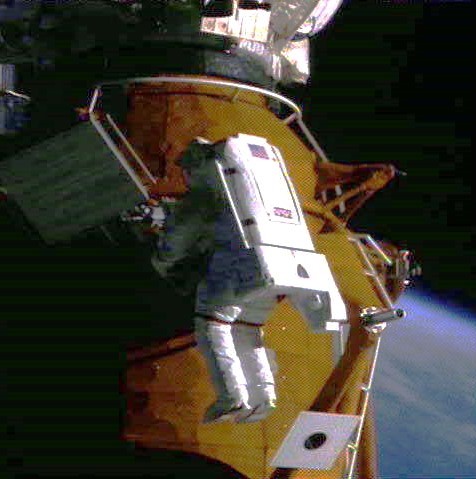
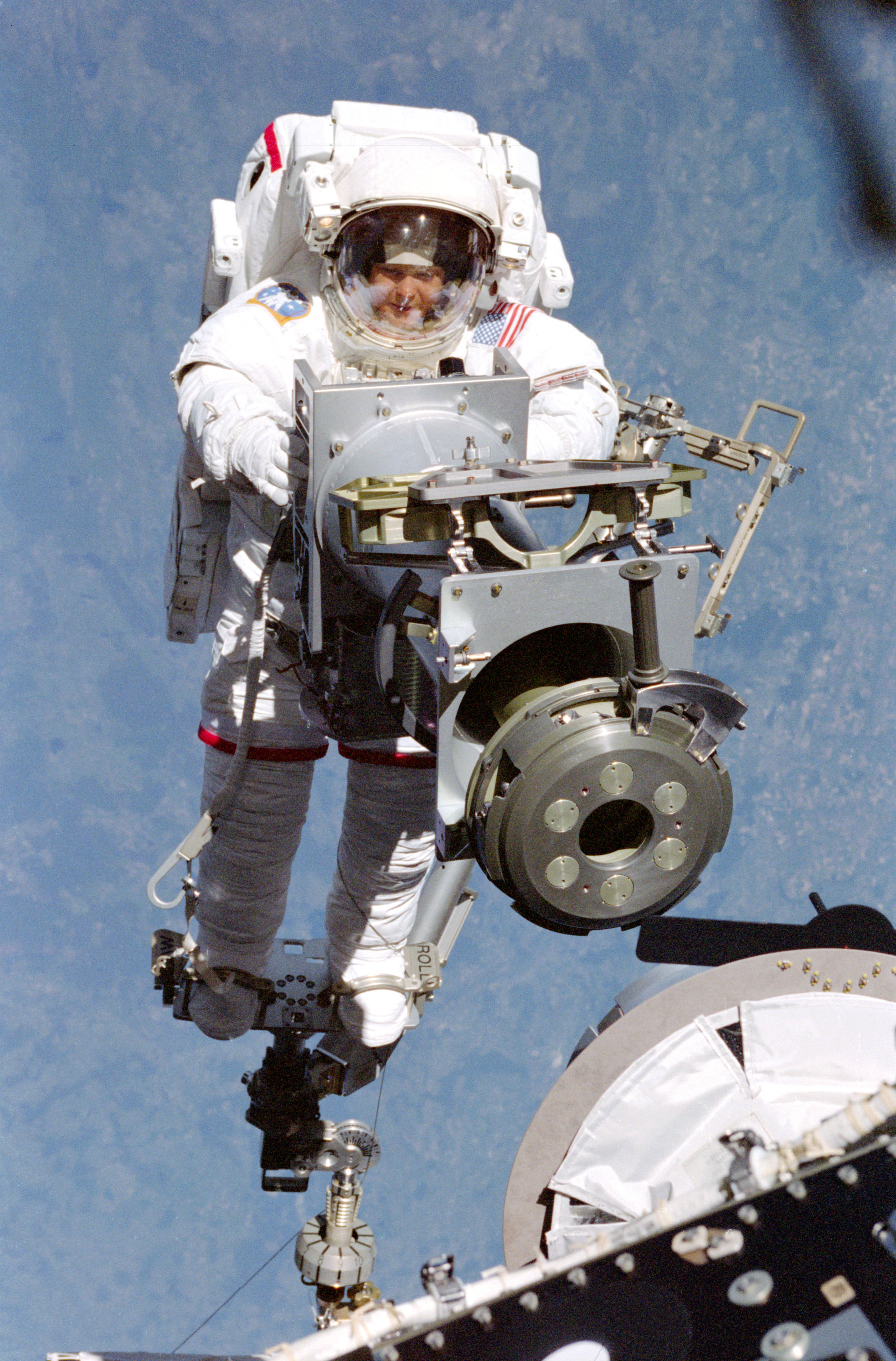
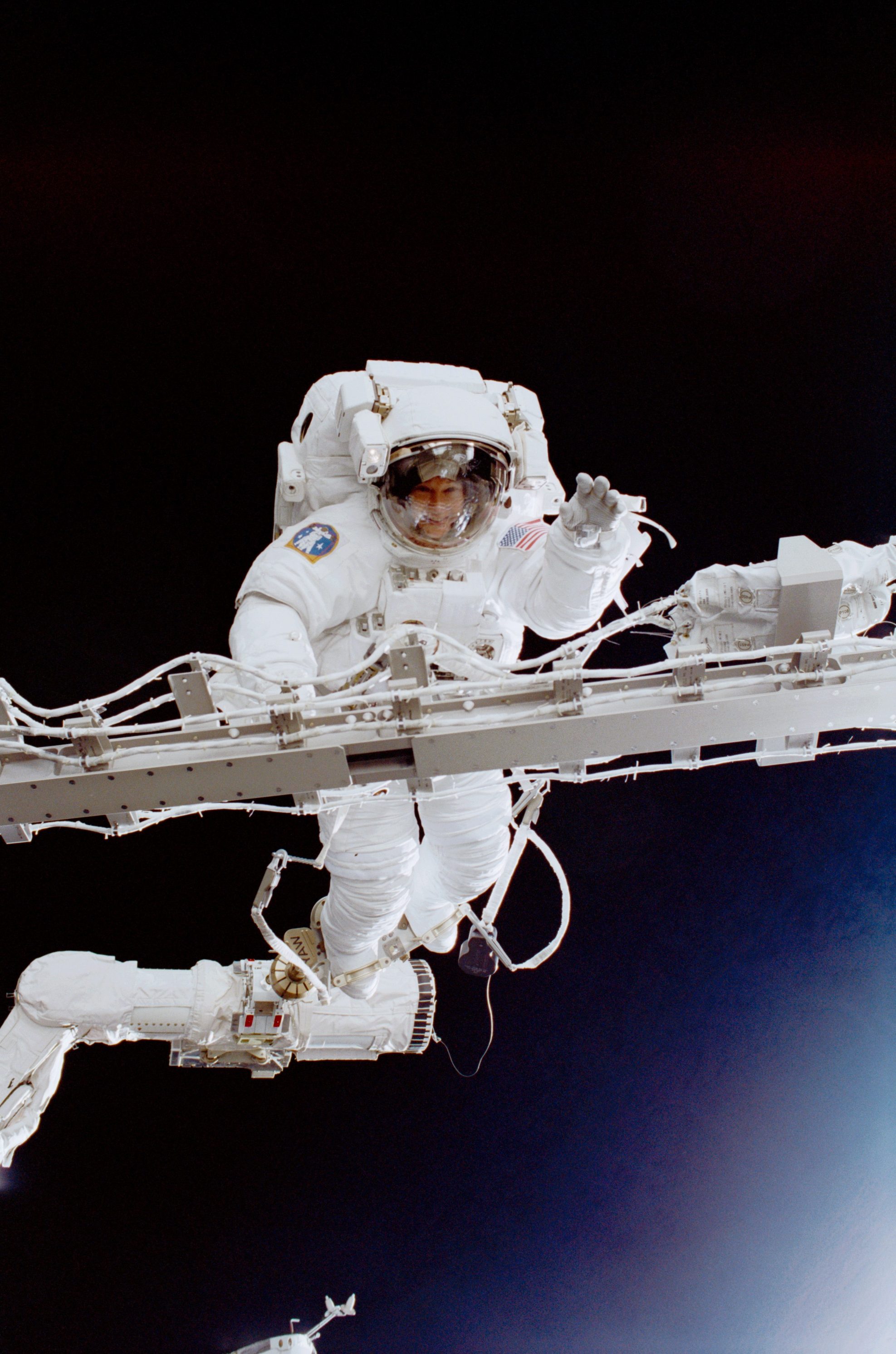
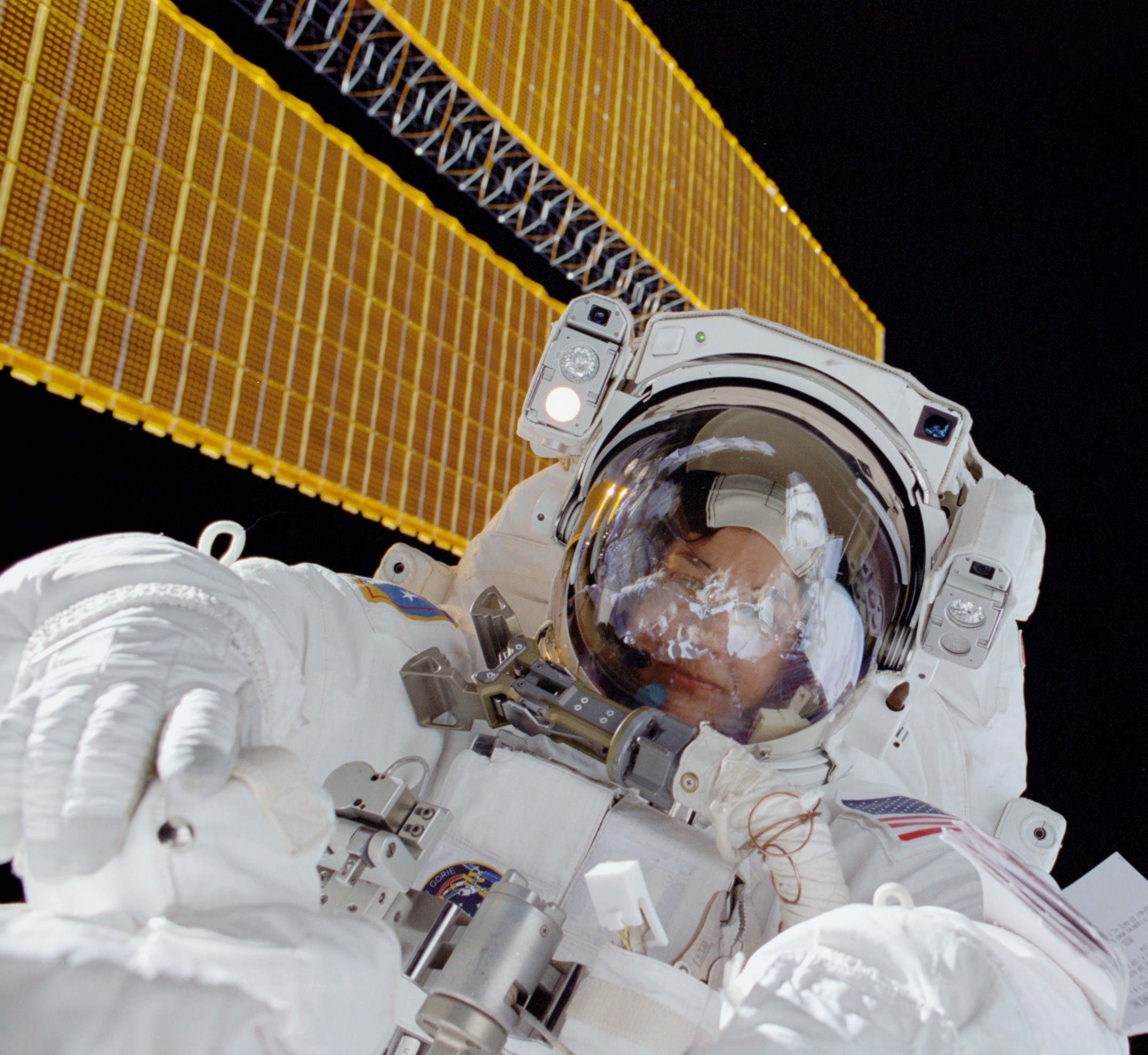
Left: NASA astronaut Linda M. Godwin, the first woman to conduct a spacewalk at Mir during STS-76. Middle left: NASA astronaut Tamara E. Jernigan, the first woman to perform a spacewalk at the International Space Station during STS-96. Middle right: Expedition 2 NASA astronaut Susan J. Helms, the first female long-duration crew member to conduct a spacewalk during the STS-102 docked phase. Right: Godwin during STS-108, the first woman to complete spacewalks at Mir and the space station.
NASA astronaut Linda M. Godwin has the distinction as the first woman of any nationality to conduct a spacewalk at Mir. As a member of the STS-76 crew, on March 27, 1996, she took part in a 6-hour 2-minute spacewalk to install handrails and four space exposure experiments onto Mir’s Docking Module. Godwin returned to space on STS-108, and on Dec. 10, 2001, took part in a spacewalk lasting 4 hours 12 minutes to install insulation blankets on the space station, earning the title as the first woman to conduct spacewalks at both Mir and the space station.
NASA astronaut Tamara E. Jernigan conducted the first spacewalk by a woman at the embryonic International Space Station. On May 29, 1999, during STS-96, the second space station assembly flight, Jernigan participated in a 7-hour 55-minute spacewalk to install U.S. and Russian cargo cranes, foot restraints, and tool bags.
Expedition 2 NASA astronaut Susan J. Helms performed a spacewalk on March 11, 2001, during the STS-102 docked phase to relocate the Pressurized Mating Adaptor-3 (PMA-3) from Node 1’s nadir port to a berth on its port side, to enable the berthing of the Leonardo Multi-Purpose Logistics Module. This marked the first time a woman long-duration crew member performed a spacewalk. Its 8-hour 56-minute duration makes it the longest spacewalk in history.
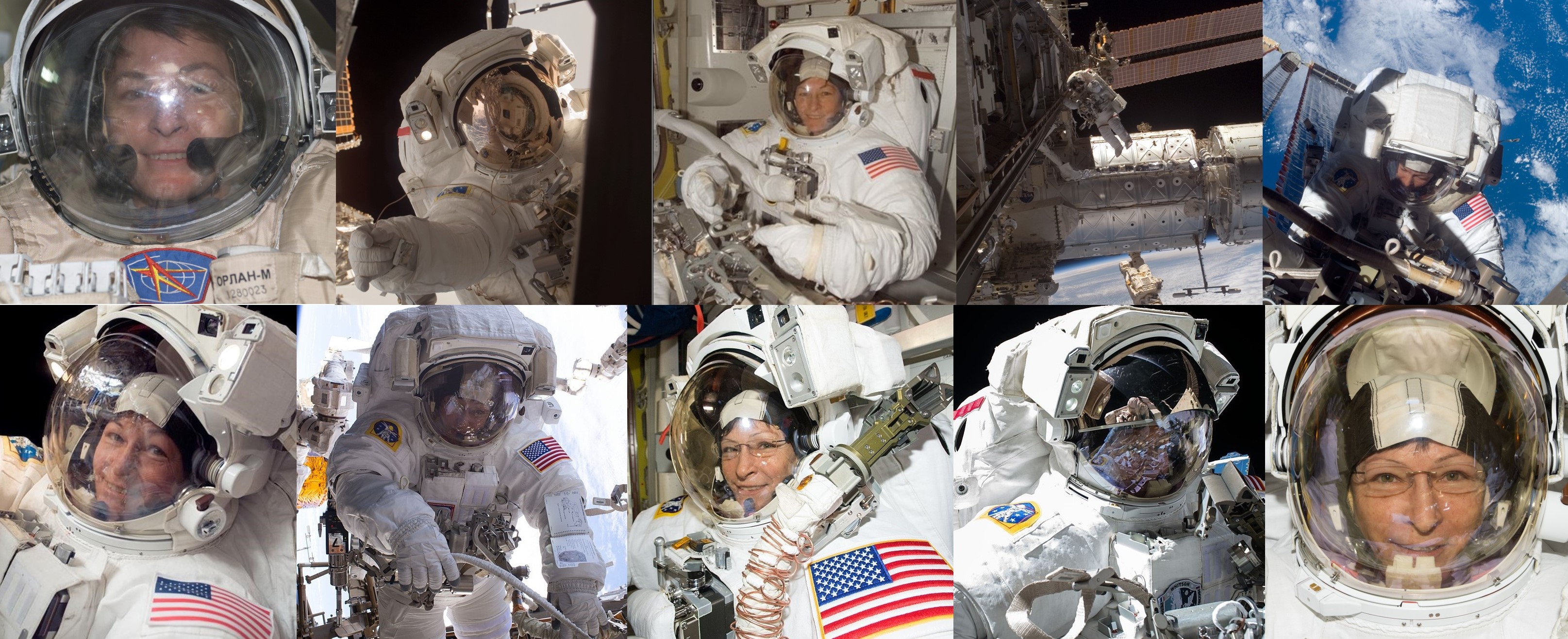
A collage of NASA astronaut Peggy A. Whitson’s 10 spacewalks during space station Expeditions 5, 16, and 50/51.
As an Expedition 5 flight engineer, NASA astronaut Peggy A. Whitson participated in her first spacewalk on Aug. 16, 2002. Clad in an Orlan spacesuit and using the Pirs module airlock, she assisted in the installation of six debris shield panels on the Zvezda Service Module. Whitson completed her next five spacewalks, wearing Extravehicular Mobility Units and using the Quest airlock, as commander of Expedition 16, one of the busiest assembly and reconfiguration periods at the space station. The primary objectives for the first three of these spacewalks, conducted on Nov. 9, Nov. 20, and Nov. 24, involved relocating the Harmony Node 2 module and PMA-2 to the front of Destiny and preparing Harmony for the arrival of the Columbus module. Work during the fourth and fifth excursions on Dec. 18 and Jan. 30, 2008, had Whitson conduct inspections and maintenance on the station’s solar array joints. During her next mission to the space station, a 289-day stay that set a new record as the longest single flight by a woman, she completed a further four spacewalks. During Expedition 50, on Jan. 6, 2017, she upgraded the station’s power system by installing three new lithium-ion batteries, and on March 30 installed electrical connections to the PMA-3 recently relocated to Harmony’s top-facing port.
During Expedition 51, as station commander once again, Whitson stepped outside on May 12 to replace an avionics package on an external logistics carrier and installed a protective shield on PMA-3. Her 10th and final excursion involved a contingency spacewalk to replace a backup data converter unit that failed three days earlier. With her 10 excursions, Whitson shares a seven-way second place tie for most spacewalks; only one person has conducted more. And with regard to total spacewalk time, she places sixth overall, having spent a total of 60 hours, 21 minutes outside the station.
During STS-115, NASA astronaut Heidemarie M. Stefanyshyn-Piper participated in two of the mission’s three spacewalks. The primary tasks of the excursions on Sept. 12 and 15, 2006, involved the addition of the P3/P4 truss segment including a pair of solar arrays to the station. During her second visit to the space station on STS-126, Stefanyshyn-Piper completed three more spacewalks on Nov. 18, 20, and 22, 2008. Tasks accomplished during these excursions included performing maintenance on one of the solar array joints, replacing a nitrogen tank, and relocating two equipment carts.
During Expedition 14, NASA astronaut Sunita L. Williams completed four spacewalks. During the first excursion during the STS-116 docked phase on Dec. 16, 2006, the primary task involved the reconfiguration of the station’s power system. The primary tasks for Williams’ three Expedition 14 spacewalks on Jan. 31, Feb. 4, and Feb. 8, 2007, involved completing the reconfiguration of the station’s cooling system. As a flight engineer during Expedition 32, Williams conducted spacewalks on Aug. 30, 2012, to replace a faulty power routing unit and prepare the station for the arrival of the Nauka module, and on Sept. 5, 2012, to install a spare power unit. During Expedition 33, Williams assumed command of the station, only the second woman to do so, and during a spacewalk on Nov. 1, 2012, repaired an ammonia leak. Across her seven spacewalks, Williams spent 50 hours 40 minutes outside the station.
Expedition 20 NASA astronaut Nicole P. Stott completed her one and only spacewalk on Sept. 1, 2009, during the STS-128 docked phase. The objectives of the 6-hour 35-minute excursion involved preparing for the replacement of an empty ammonia tank and retrieving American and European experiments from the Columbus module.
On July 24, 2010, during Expedition 24, one of the station’s ammonia pump modules failed. The loss of coolant forced controllers to shut down several critical station systems although neither the vehicle nor the crew were ever in danger. The failure resulted in two of the Expedition crew members including NASA astronaut Tracy C. Dyson performing three contingency spacewalks on Aug. 7, 11, and 16, 2010, to replace the pump module. The repairs took nearly 23 hours of spacewalking time. During her next mission, Expedition 71, Dyson began a spacewalk on June 24, 2024, but a leak in her suit forced the cancellation of the excursion after 31 minutes.
NASA astronaut Kathleen H. Rubins completed two spacewalks during Expedition 48. During the first, on Aug. 19, 2016, she helped to install the first of two international docking adapters (IDA) to PMA-2 located at the forward end of Harmony. The IDA allows commercial spacecraft to dock autonomously to the space station. During the second excursion on Sept. 1, she retracted a thermal radiator, tightened struts on a solar array joint, and installed high-definition cameras on the outside of the station. Rubins conducted two more spacewalks during her second mission, Expedition 64. On Feb. 28, 2021, she began to assemble and install modification kits for upcoming solar array upgrades, completing the tasks during the next spacewalk on March 5.
During her first spacewalk on March 22, 2019, Expedition 59 NASA astronaut Anne C. McClainreplaced older nickel hydrogen batteries with newer and more efficient lithium-ion batteries. McClain ventured out for her second spacewalk on April 8 to install a redundant power circuit for the station’s Canadarm robotic arm and cables for more expansive wireless coverage outside the station.
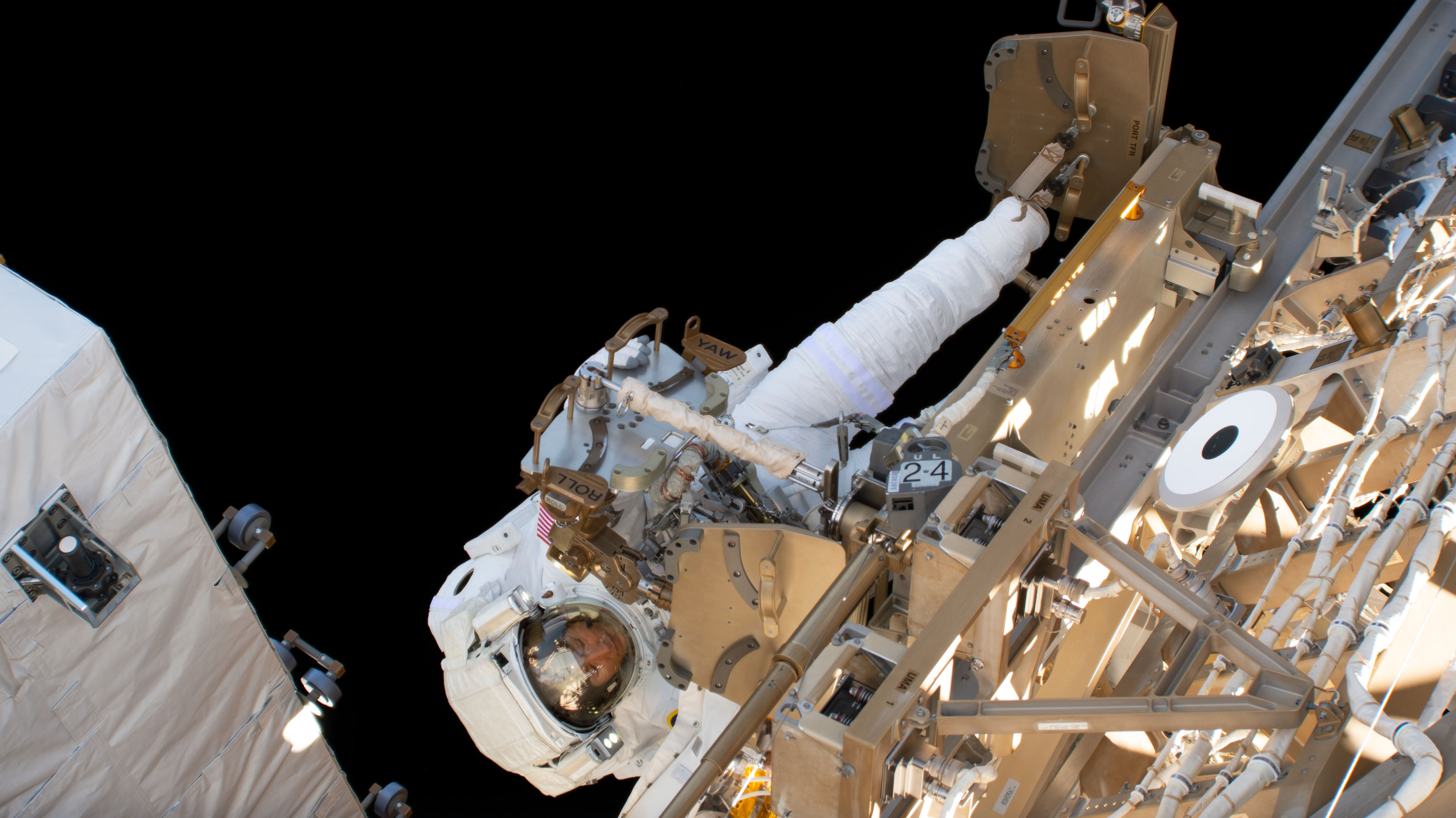
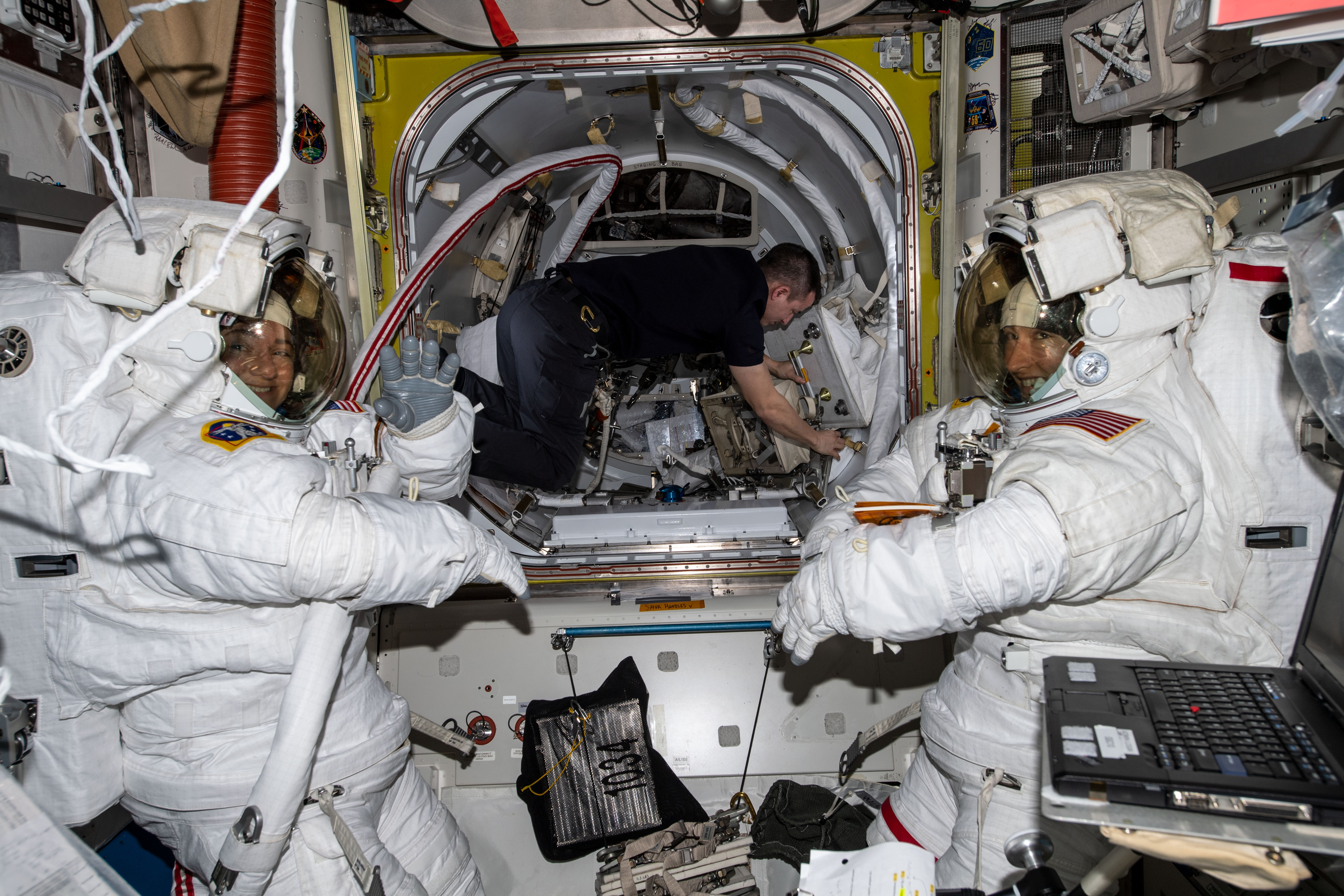
Left: Expedition 59 NASA astronaut Christina H. Koch during the first of her six career spacewalks. Right: NASA astronauts Jessica U. Meir, left, and Koch, assisted by their Expedition 61 crewmates, prepare for the first all-woman spacewalk.
During Expedition 59, Koch conducted her first spacewalk on March 29. She helped to install three newer lithium-ion batteries to replace six older nickel hydrogen batteries. The Expedition 61 crew conducted a record nine spacewalks between October 2019 and January 2020, and women participated in five of them. Koch’s second and third spacewalks on Oct 6 and 11 continued the work of replacing the station’s batteries.
Koch and fellow NASA astronaut Jessica U. Meir made history on Oct. 18 when they floated outside the space station to carry out the first all-woman spacewalk, one of several excursions to replace the station’s batteries. The capsule communicator (capcom), the person in the Mission Control Center at NASA’s Johnson Space Center in Houston who communicates with the astronauts in space, for this historic spacewalk was three-time space shuttle veteran Stephanie D. Wilson.
“As much as it’s worth celebrating the first spacewalk with an all-female team, I think many of us are looking forward to it just being normal,” astronaut Dyson said during live coverage of the spacewalk.
Koch and Meir conducted two more all-woman spacewalks on Jan. 15 and 20, 2020, continuing the battery replacement tasks. During her six spacewalks, Koch spent 44 hours 15 minutes outside. In addition to her spacewalk accomplishments, Koch set a new record of 328 days for a single spaceflight by a woman.
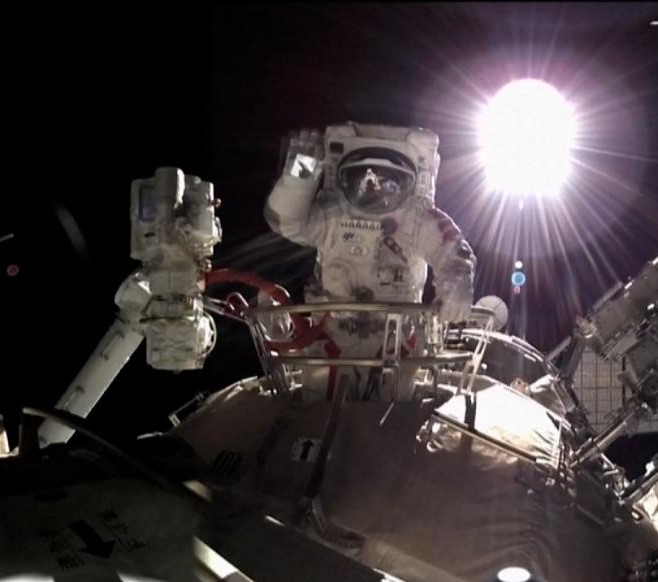

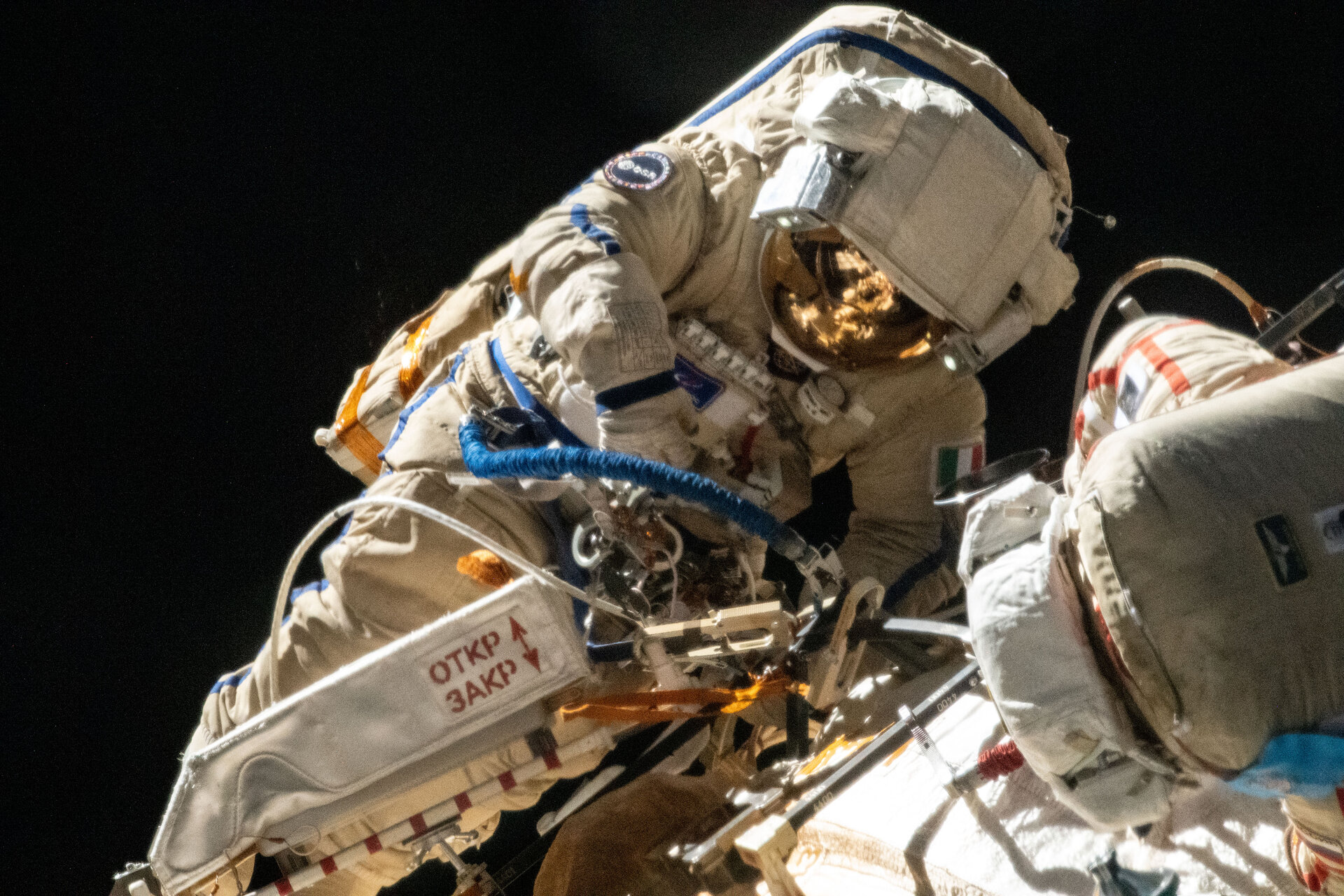
Left: Wang Yaping during the first spacewalk by a Chinese woman astronaut from the Tiangong space station. Image credit: courtesy of CNSA. Middle: NASA astronaut Kayla S. Barron during the first of two spacewalks during Expedition 66. Right: During Expedition 67, Italian astronaut Samantha Cristoforetti conducts the first spacewalk by a woman from the European Space Agency.
During her second trip into space, People’s Republic of China astronaut Wang Yaping launched aboard the Shenzhou 13 spacecraft as part of the second resident crew to live aboard China’s Tiangong space station. On Nov. 7, 2021, she stepped outside the space station, the first Chinese woman to do so, wearing a Feitian-2 spacesuit. She spent 6 hours 25 minutes installing a grapple fixture for the facility’s robotic arm.
During Expedition 66, NASA astronaut Kayla S. Barron completed two spacewalks. During the first one, on Dec. 2, 2021, Barron replaced a faulty communications antenna. On March 15, 2022, during the second spacewalk, she assembled and installed modification kits required for future solar array upgrades.
Italian astronaut Samantha Cristoforetti conducted the first spacewalk by a female European Space Agency astronaut. For the excursion on July 21, 2022, she wore an Orlan spacesuit and used the Poisk module airlock. Objectives of the spacewalk included deploying 10 nanosatellites, working to install the European robotic arm on the Nauka module, and reconfiguring cargo booms.


Left: Chinese astronaut Liu Yang, left, during her spacewalk from the Tiangong space station. Image credit: courtesy of CNSA. Right. NASA astronaut Nicole A. Mann at the conclusion of her first spacewalk during Expedition 68.
As a member of the third expedition aboard the Tiangong space station, Chinese astronaut Liu Yang participated in a spacewalk on Sept. 1, 2022. This marked the first use of the airlock in the Wentian module. Activities during the excursion included installing work stations and an additional cooling pump for the Wentian module.
Expedition 68 NASA astronaut Nicole A. Mann participated in two spacewalks, on Jan. 20, and Feb. 2, 2023. Objectives of the excursions included assembling and installing brackets for upcoming solar array upgrades.
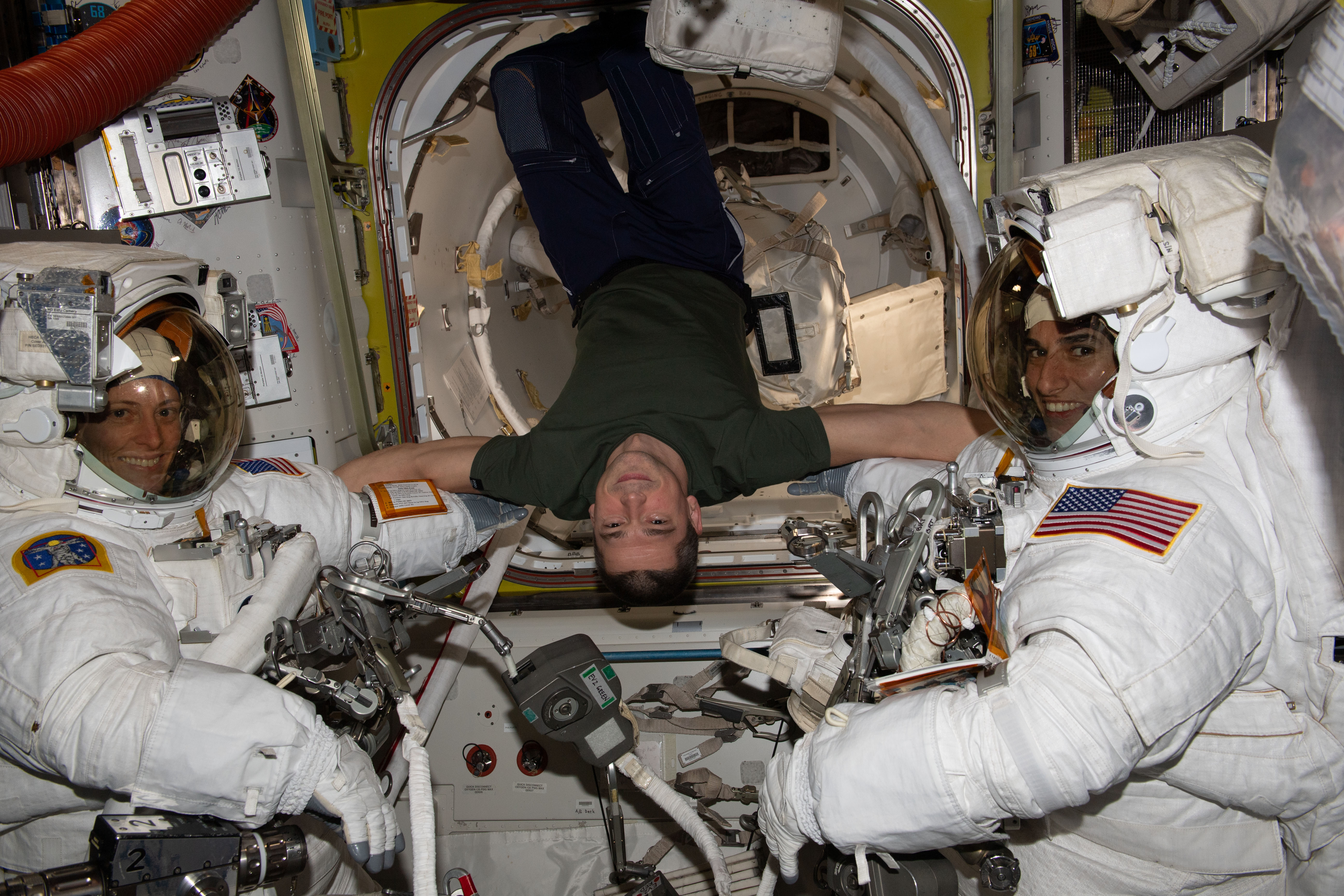
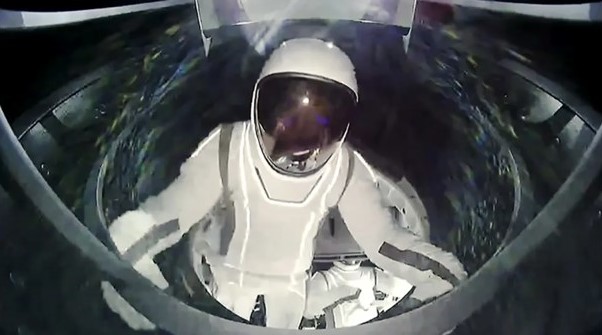
Left: Laurel A. O’Hara, left, and Jasmin Moghbeli, right, prepare for their spacewalk during Expedition 70. Right: SpaceX astronaut Sarah L. Gillis performs the first commercial spacewalk by a woman during the Polaris Dawn mission.
During Expedition 70, NASA astronauts Jasmin Moghbeli and Loral A. O’Hara performed the fourth all-woman spacewalk. The primary activity during the excursion involved replacement of bearings in a solar array joint.
SpaceX employee Sarah L. Gillis performed the first female commercial spacewalk during the Polaris Dawn mission on Sept. 12, 2024. During the 1 hour 46 minute excursion, Gillis tested the flexibility of the SpaceX designed spacesuit.
Quelle: NASA
